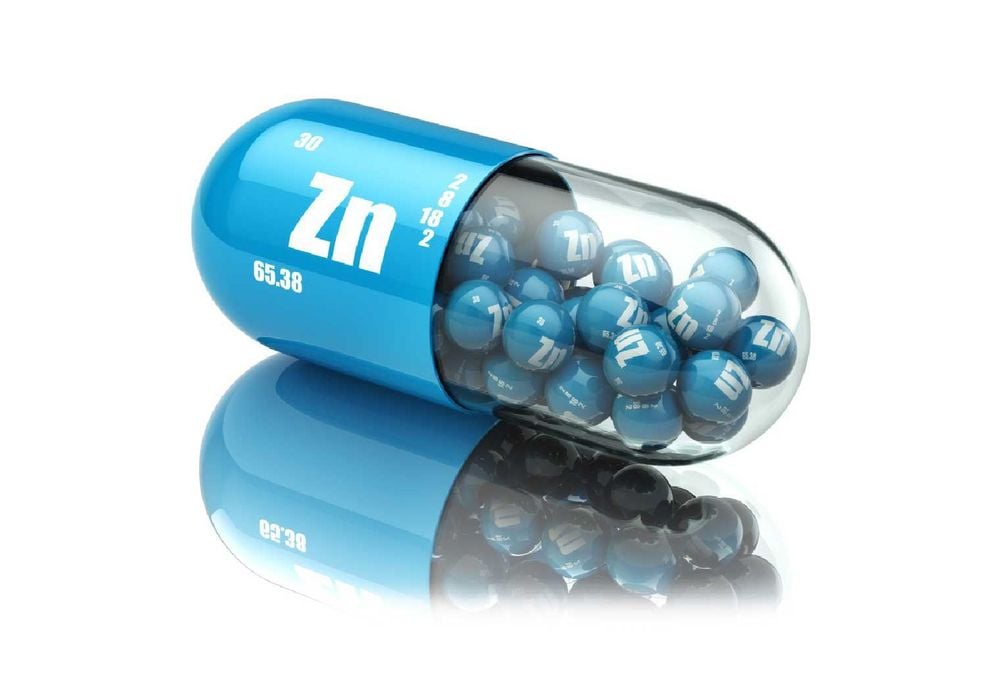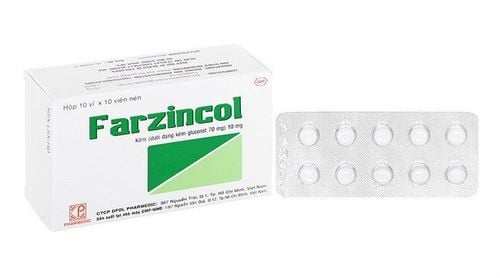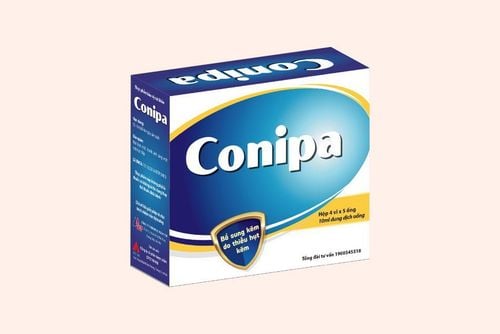This is an automatically translated article.
The article is professionally consulted by Master, Doctor Nguyen Minh Tuan - Pediatrician - Department of Pediatrics - Neonatology - Vinmec Danang International General Hospital.Zinc is one of the important trace minerals for the human body. Although zinc only makes up a very small part of the body, it is an indispensable micronutrient. Especially for children, zinc plays a role in helping to strengthen the immune system and growth in children.
1. What is Zinc?
Zinc is an essential trace mineral for the human body, and is mainly absorbed from the gastrointestinal tract in the small intestine. Zinc has many important biological functions, is an essential component of many proteins, and plays an important role in the development and growth of children.Zinc is often found in foods such as shrimp, milk, beef, egg yolk, eel, pig liver, oysters, oysters, fish, oil seeds, soybeans,... is one of the foods rich in zinc and easily absorbed. A person needs zinc in the diet in a day will be divided by age as follows:
Children under 5 months: 2.8 mg/day; Children from 6-11 months to 2 years old: 4.1 mg/day; Children from 3-5 years old: 4.8 mg/day; Children from 6-9 years old: 5.6 mg/day; From 1 to 19 years old: 7.2 mg/day for women, 8.6 mg/day for men. Although zinc only makes up a small part of the body, it is indispensable. Zinc deficiency in the body will weaken the immune system, slow growth and development. In addition, zinc deficiency can cause a number of serious diseases.

Kẽm là một chất khoáng vi lượng thiết yếu đối với cơ thể con người, và chủ yếu được hấp thu qua đường tiêu hóa tại ruột non
2. The role of zinc in strengthening immunity
Zinc has many important roles for the immune system including:Zinc helps to develop the immune system and keep it functioning properly; Protect the body against disease; Helps wounds heal; Stimulates the development of T lymphocytes and B lymphocytes, thereby strengthening the immune system to help the body fight pathogens, increase resistance and fight infections. If zinc is deficient, the body will reduce the development and function of immune cells including T lymphocytes, B lymphocytes and macrophages. In children, zinc deficiency leads to macrophage activation and impaired phagocytosis. Therefore, when the body lacks zinc, it will compromise the function of the immune system and increase the risk of infections. According to a study by Castillo-Duran, adequate zinc supplementation reduces pneumonia cases by 41% and reduces mortality by more than 50%.
3. The role of zinc in growth and development in children
The role of zinc is essential for growth in children:Promotes physical growth by effects on the digestive system; Enhances absorption, increases protein synthesis and cell division. When zinc deficiency leads to difficult cell division, it seriously affects the growth of height in children, especially during puberty. Involved in the synthesis and regulation of the function of hypothalamic hormone axes such as GH, IGF-I. These are growth hormones and growth stimulants. Maintains and protects taste and smell cells. The metabolism of taste cells will be affected if zinc deficiency, leading to anorexia due to taste disorders. Children who are lazy to eat will be malnourished and affect their growth and development; Zinc helps transport calcium to the brain to help stabilize nerves and maintain brain development. Therefore, if supplemented with adequate zinc, young children will have a good memory; Zinc regulates the hormonal function of the pituitary and gonads. Combined with the nervous system, hormones regulate activity to help the human body adapt to circumstances more easily. Therefore, zinc-deficient children will be poorly adapted to environmental changes, easily fall ill and suffer from a number of diseases related to the environment; In addition, zinc helps strengthen the immune system. When the body lacks zinc, it increases the risk of infectious diseases, thereby reducing growth and development, increasing the risk of malnutrition and death in children. According to a study by Castillo - Duran, infants with low birth weight supplemented with zinc showed significant growth in weight and height during the first 6 months of life.

Vai trò của kẽm rất cần thiết cho sự tăng trưởng ở trẻ em
4. Prevention of zinc deficiency in children
Zinc has a very important role, but the manifestation of zinc deficiency is extremely latent and difficult to diagnose, which can be confused with a number of diseases. Signs of zinc deficiency include:Loss of appetite; Hair loss; Persistent diarrhea ; Having skin diseases such as: eczema, slow healing, slow healing of scars Visual disturbances; Bone development disorders: growth retardation, illness, weight loss,... The prevention of zinc deficiency in children is very important to help children develop healthy and strengthen the immune system. Some preventive measures for zinc deficiency include:
Breastfeeding : Breastfed infants are at risk of zinc deficiency because zinc in breast milk is much easier to absorb than cow's milk. Therefore, it is necessary to introduce exclusive breastfeeding for the first 6 months, and continue until 2 years of age. In addition, the mother needs to eat more zinc-rich foods to have enough for both mother and baby. Add foods rich in zinc in daily meals: Foods rich in zinc such as egg yolks, beef, pork liver, fish, shrimps, eel, oysters, oysters, milk, soybeans, oil seeds, .. Supplement with zinc : Formula milk, nutritional powder,... Or supplement zinc with zinc-containing products in the form of zinc-containing multi-micronutrient nuggets or syrups,... Especially During periods of illness such as diarrhea, or respiratory infections, children need higher than normal zinc requirements. In summary, zinc is an important trace element, an indispensable component in the human body. Zinc participates in many biological functions in the human body, especially playing an important role in enhancing immunity and growth in children. Therefore, it is necessary to supplement zinc for children with zinc-rich foods. For children, it is necessary to exclusively breastfeed for the first 6 months of life because breast milk is easier to absorb than cow's milk, the mother needs to eat more zinc-rich foods to have enough zinc for both mother and baby. In addition, when seeing signs of zinc deficiency such as hair loss, loss of appetite, growth retardation, etc., it is necessary to immediately go to a medical facility for intervention and advice on appropriate nutrition.
In addition to zinc, parents also need to supplement their children with other important vitamins and minerals such as lysine, chromium, B vitamins,... errands.
Please regularly visit Vinmec.com website and update useful information to take care of your baby and family.














